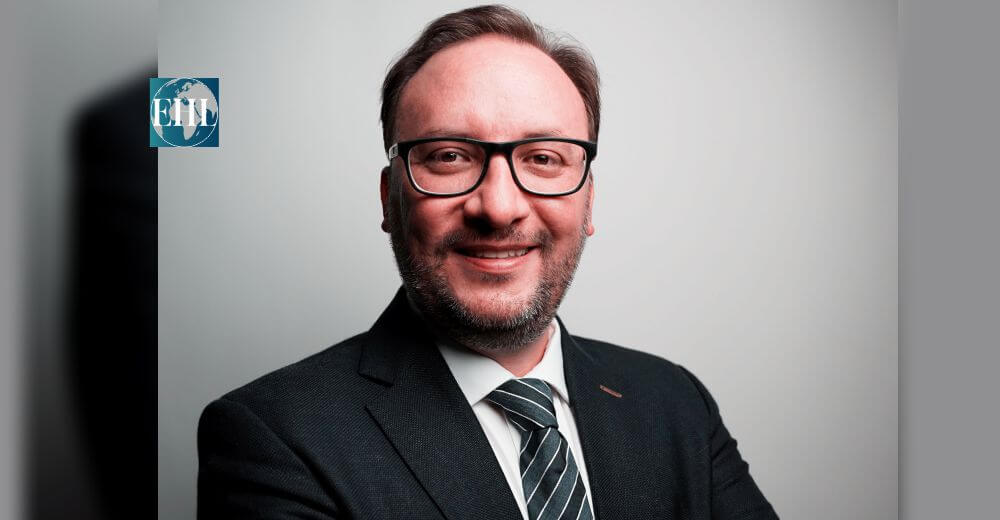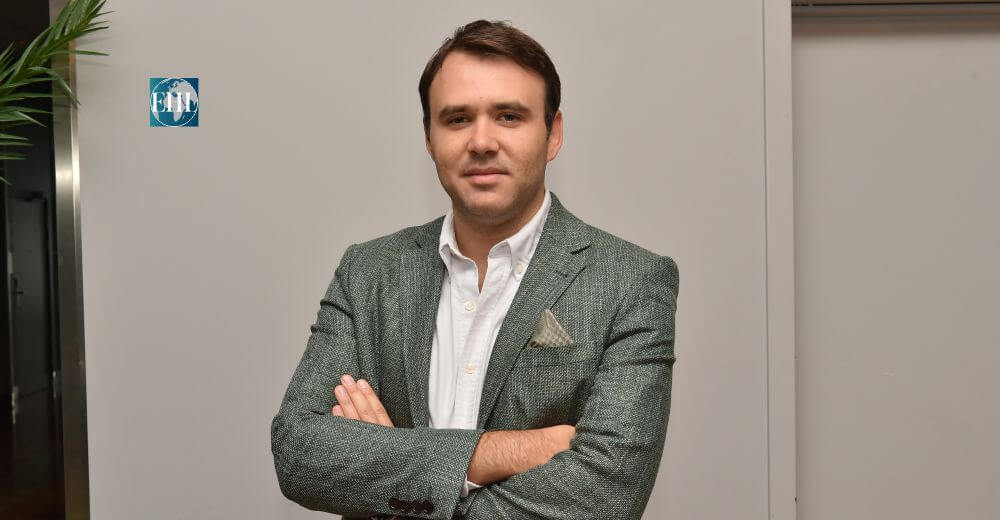Advances in technology, research, and clinical practices are transforming the healthcare sector rapidly. In Europe, the focus on enhancing healthcare strategies has never been more crucial. This transformation is especially pronounced in cardiology, where innovative approaches are shaping the future of patient care. An important player in this evolution is Cardialysis, a leading cardiovascular research organization based in The Netherlands. Through advance research and clinical trials, it is setting new standards in cardiovascular healthcare.
Dr. Ernest Spitzer, the CEO of Cardialysis, exemplifies the reforming leadership steering this innovative ship. As a cardiologist, Dr. Spitzer offers a wealth of experience and a unique perspective to the company. His journey from a curious medical student in Peru to the helm of one of the world’s leading cardiovascular research organizations is a testament to his dedication and vision. Under his leadership, Cardialysis continues to push the boundaries of cardiovascular research, ensuring high-quality data and revolutionary results.
Dr. Spitzer’s path is marked by a continual pursuit of knowledge and excellence. His early fascination with the heart and its complex functions fueled his passion for cardiology. Over the years, he has sharpened his skills and expertise through extensive training and research across various countries. This journey not only equipped him with a deep understanding of cardiology but also instilled in him the values of curiosity, perseverance, and integrity. These qualities have been instrumental in shaping his approach to leadership and driving the success of the organization.
Let’s explore how Cardialysis, led by Dr. Ernest Spitzer, is revolutionizing cardiovascular research and healthcare!
From Curiosity to Leadership
Dr. Spitzer’s journey from being a cardiologist to his current role as CEO is a compelling story of curiosity and dedication. “I have always been a curious person. Before going to classes at school, I used to read the chapter ahead and search in my parent’s library for any words I wouldn’t know,” he recalls. His early fascination with learning and discovery set the stage for a remarkable career. As the internet became a new frontier for knowledge, his curiosity found a limitless playground. “When the Internet became the new standard, which coincided with my first year at medical school in Peru, I would spend literally hours navigating on question after question,” he adds.
His medical journey began in Peru, where he developed a keen interest in cardiology. “The heart captivated me from the start and became my main interest. Cardiology is a fascinating discipline and virtually all body organs are influenced by the function of the heart,” he explains. His clinical years were filled with exploration and learning, with each patient presenting a new world to understand. His passion for research led him to further his studies in Spain, with training periods in the United States, Austria, and Switzerland. It was in Switzerland that he encountered Cardialysis, an organization conducting top-level research in cardiology. What started as a six-month visit to The Netherlands evolved into a lifelong commitment to the organization, where he has risen through the ranks to become CEO.
A Legacy of Excellence
Cardialysis is renowned for its pioneering role in cardiovascular research. Founded on principles of academic leadership and innovation, it offers a comprehensive range of services in clinical research. “The organization is a leading cardiovascular research entity offering services and expertise in Europe and throughout the world. As a cradle of academic leadership, it has capabilities to support the design of innovative clinical trials and organize think tanks for setting up standards in clinical research,” he says.
The organization specializes in two main areas: full-service, multinational, randomized clinical trials with medical devices and centralized image analysis, including cardiac safety. “As an international core laboratory, it offers central and standardized analysis of images obtained through echocardiography, cardiac computed tomography and magnetic imaging, intracoronary imaging, and electrocardiography,” he elaborates. This specialization ensures it remains at the edge of cardiovascular research, providing high-quality data and insights that drive the development of new therapies.
Leadership and Expansion
Steering the organization through its expansion has required a strategic focus on quality, efficiency, and expertise. “When dealing with medical data it is critical that all stakeholders realize how important it is to ensure high quality and how difficult it is. Clinical trial results and interpretation can be affected by insufficient data or data of reduced quality,” emphasizes Dr. Spitzer. The commitment to quality is ingrained in the organization’s culture, attracting clients who trust it to deliver reliable and precise data.
Efficiency is another basis of his leadership strategy. “With a more challenging global economy, and specifically in the medical device space, efficiency is a second critical component. High efficiency reflects in reduced costs and streamlined procedures,” he notes. The organization continuously improves its processes, supported by the implementation of artificial intelligence in daily activities. Expertise, he believes, trumps large teams. “Our organization is relatively small, but our team is composed of experts, who can predict and prevent issues during trial execution and who can react timely to changes, as they usually are required during clinical research,” he asserts.
Medical Expertise in Leadership
Dr. Spitzer’s medical background profoundly influences his approach to leading a Clinical Research Organization (CRO). “Cardialysis has a unique focus on cardiovascular diseases for which our organization is designed to be led or co-led by academic cardiologists, in executive or non-executive roles,” he explains. This focus ensures that it stays at the front of developments in cardiovascular healthcare, maintaining close interactions with clinical research leaders globally.
Cardialysis is a founding organization of the Academic Research Consortium and the EU-MDR Cardiovascular Collaboratory, which aim to set standards for clinical research and accelerate research in Europe, respectively. Additionally, it is the preferred partner of the European Cardiovascular Research Institute, which designs and executes groundbreaking clinical investigations. These collaborations enhance its ability to contribute significantly to the field of cardiovascular research.
Strategic Directions and Global Impact
Under his leadership, the organization is positioned to enhance its impact on cardiovascular research through strategic initiatives. “We will continue fulfilling our mission, which is ‘to be at the heart of cardiovascular research’. This is reflected in designing and executing clinical trials with groundbreaking and innovative therapies, focused on improving access to high-quality healthcare,” he affirms. The organization is keen on incorporating artificial intelligence into its processes and developing pathways for registry-based research, making research faster and more affordable.
Expanding services in the United States, China, and other parts of the world is a key part of the strategic direction. “We are proud to be considered among the best providers worldwide and we will continue to do so by adapting, innovating, and listening to our customers and partners,” he adds. This global expansion will enable the organization to bring its high standards of cardiovascular research to new markets, driving innovation and improving healthcare outcomes worldwide.
Fostering a Collaborative Culture
Collaboration and innovation are integral to the success of the organization, given the multidisciplinary nature of its work. “Clinical research is by nature a collaborative field. If one person is behind, all the team is behind. Thus, effective and open communication is important,” he emphasizes. The organization works as teams, respecting each other’s expertise, and ensuring timely execution of tasks. Each project has an expert project manager responsible for monitoring timelines and communicating with clients.
Its history of involvement in innovative and groundbreaking concepts continues to define its culture. “We continue to be at the forefront of research being involved in the largest coronary imaging and coronary physiology trials globally,” he notes. The organization invites manufacturers and investigators interested in exploring innovative therapies to collaborate, ensuring a great match between groundbreaking projects and its expertise.
Translating Expertise into Impact
Ensuring that the organization’s expertise translates into meaningful contributions to cardiovascular therapies is a primary goal for Dr. Spitzer. “Medicine is a sacred profession, since mistakes or sloppiness will cost lives. Clinical research is in the same category. We are serious and dedicated to our work,” he states. The organization’s commitment to high-quality data and reliable results helps properly inform investigators and manufacturers about the success of new interventions or devices.
Cardialysis actively contributes to setting new standards in clinical research, such as registry-based research and novel methods in clinical trial design. “We strongly believe that quality of life has a role as important as duration of life, and we emphasize that more research is needed in areas where medical devices can radically improve quality of life,” he asserts.
Guiding Principles in Decision-Making
Integrity, courage, perseverance, and gratitude are the guiding principles behind Dr. Spitzer’s decision-making process. “The first value is integrity. Clinical research is a fast-moving field and there is no place for dishonesty,” he emphasizes. Understanding and adhering to regulations is crucial in this highly regulated environment. Dr. Spitzer also highlights the importance of courage, especially when making high-stakes decisions. “Having the courage to take the unpopular position can make the difference,” he adds.
Perseverance and gratitude are equally important in Dr. Spitzer’s leadership philosophy. “Keep moving, or as my wife says, stop stopping. I believe in working hard in this life, and that there will be enough time to rest in the next life,” he states. Being thankful for the support of loved ones and the opportunities provided by mentors and colleagues allows Dr. Spitzer to lead with a positive outlook and a commitment to continuous improvement.
Significant Accomplishments and Leadership Perspective
Becoming the CEO of Cardialysis stands out as Dr. Spitzer’s most significant professional accomplishment. “Since my youth in Peru, my dream was to participate in innovation and to address my curiosity. I could only dream of working at a top-level institution in the first world. I am living a dream and have the joy to do so next to my inspiring wife in this beautiful country,” he reflects. This achievement is a showcase to his skills, perseverance, and passion for making a difference in cardiology.
Dr. Spitzer’s journey has shaped his perspective on leadership, emphasizing the importance of resilience, passion, and gratitude. He believes that finding joy in one’s work is crucial for sustained success and fulfillment. “A fascinating lesson from my father is that once you find a job that you enjoy as much as a hobby, you will no longer be working but enjoying a profitable hobby,” he shares.
Advice for Aspiring Leaders
For professionals aspiring to lead in the clinical research field, Dr. Spitzer offers valuable advice: “Never stop being curious. Never stop developing yourself. Follow your dreams. Work hard. Spend high-quality time with your loved ones. Remember that gratitude is very powerful.”
Dr. Spitzer acknowledges that frustration can be a temporary hurdle for talented individuals who feel that time is not moving fast enough. “Learning perseverance and resilience is as important as having talent for reaching success and happiness,” he advises. This balanced approach to personal and professional development is essential for aspiring leaders aiming to make a meaningful impact in clinical research.
Vision for the Future
Looking ahead, he envisions a future where the organization continues to lead in innovation and quality in cardiovascular research. “To continue at the forefront of innovation. To transition to an AI-supported facility with expert human supervision. To continue setting up standards for improved collaboration among clinical research stakeholders,” he outlines. The aim is to become the preferred one-stop-shop for clinical research stakeholders in cardiology, adapting to the demands of the time and excelling in innovation.
He trusts that by identifying and partnering with investigators and manufacturers who share the organization’s passion for quality, efficiency, and expertise, it will continue to make a significant difference in cardiovascular healthcare. The focus remains on improving patient outcomes and enhancing the quality of life through groundbreaking research and innovative therapies.









